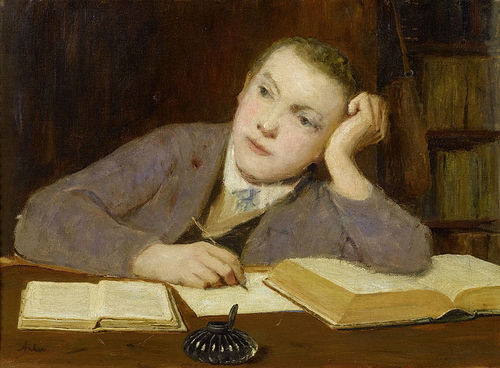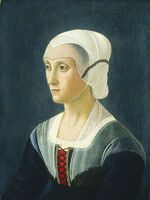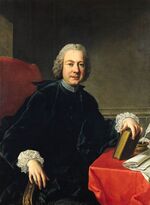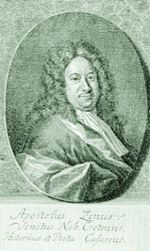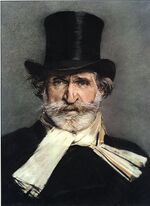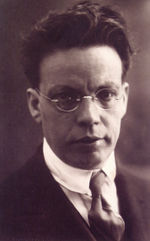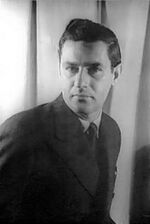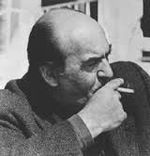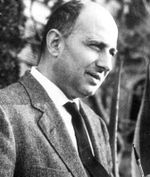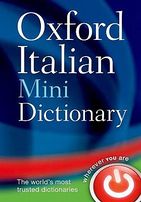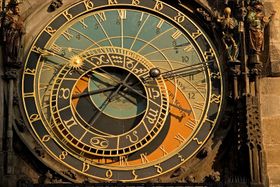Category:Fiction--Italian
(Redirected from Italian Fiction)
Jump to navigation
Jump to search
Pages in category "Fiction--Italian"
The following 200 pages are in this category, out of 660 total.
(previous page) (next page)1
- ~~ Fiction 1400s ~~
- == == 1450s == == ==
- La rappresentatione della Annunziazione di Nostra Donna (1471 Belcari), play
- Vita della gloriosissima Vergine Maria (Life of the Most Glorious Virgin Mary / 1471 Cornazzano), poetry (Italian)
- Vita di Cristo (Life of Christ / 1472 Cornazzano), poetry (Italian)
- Storie sacre (Sacred Narratives / 1475c Tornabuoni), poetry
- La rappresentatione di san Giovanni & Paulo (1491 Medici), play
- == == 1500s == == ==
- Orlando furioso (The Frenzy of Orlando / 1516 Ariosto), Italian poem
- Commedia della Conversione di Santa Maria Maddalena (1521 Alamanni), play
- Commedia della vita e della morte di S. Giovanni Battista (1525 Ottonaio), play
- L'umanità di Cristo (The Humanity of Christ / 1535 Aretino), novel
- La Mariana (1560 Dolce), play
- La gloriosa e trionfante vittoria donata dal grande Iddio al popolo hebreo per mezzo di Giuditta sua fidelissima serva (1564 Sacchetti), play
- Oloferne (1594 Alberti), play
- == == 1600s == == ==
- Giudetta (1602 Lottini), play
- La vita di S. Longino martire cavalier mantoano (1605 Magagnati), poetry
- La Reina Ester (1615 Cebà), poetry
- La Maddalena (Magdalene / 1617 Andreini), play
- La Maddalena (Magdalene / 1617 Monteverdi, Rossi, Effrem, Ghivizzani), theatre music
- Dialogo del Figliuol Prodigo (The Prodigal Son / 1619 Anerio), sacred dialogue
- Dialogo della conversione di San Paolo (Conversion of St. Paul / 1619 Anerio), sacred dialogue
- Dialogo di David (David and Goliath / 1619 Anerio), sacred dialogue
- Ester (1619 Modena), play
- Santa Maria Maddalena (1621 Cicognini), play
- La Giudea distrutta da Vespasiano e Tito (1627 Finella), play
- Esther (1628 Della Valle), play
- Iudit (1628 Della Valle), play
- La strage degl'innocenti (The Slaughter of the Innocents / 1632 Marino), poetry (Italian)
- Maria Maddalena peccatrice e convertita (1636 Brignole-Sale), novel
- L’ebrea famelica (The Famishing Jewess / 1640 Caputi / Vittori), oratorio (music & libretto)
- L'incoronazione di Poppea (The Coronation of Poppaea / 1642 Monteverdi / Busenello), opera (music & libretto), Venice premiere (cast)
- L'orto di Getsemani glorioso nei sudori di Cristo (1661 Arresti), oratorio
- Licenza di Giesù da Maria (1661 Arresti), oratorio
- S. Pietro piangente (St. Peter Weeping / 1664 Ziani / Guadagni), oratorio (music & libretto), Vienna premiere
- La strage degli innocenti (1665 Bertali), oratorio
- Il Nerone (Nero / 1666 Biancolelli), play
- Il Tito (Titus / 1666 Cesti / Beregani), opera (music & libretto), Venice premiere
- Le lachrime di S. Pietro (The Tears of St. Peter / 1666 Sances / Sbarra), oratorio
- La Pellegrina ingrandita; ovvero, La Regina Ester (1666 Torre), play
- Giona profeta (The Prophet Jonah / 1667 Pedrazzoli / Draghi), oratorio
- Il Tito (1668 Binitti), opera
- La Giuditta (Judith / 1668 Cazzati), oratorio
- La Giuditta (Judith / 1668 Draghi), oratorio
- S. Andrea Apostolo (1672 Benevoli / Benigni), oratorio
- Claudio Cesare (Claudius Caesar / 1672 Boretti / Aureli), opera (music & libretto), Venice premiere
- Li Maccabei (The Maccabees / 1674 Bicilli / Mazzei), oratorio
- Lo sposalizio di Rebecca (1675 Arresti), oratorio
- Il Nerone (Nero / 1675 Boccaccio), play
- San Giovanni Battista (St. John the Baptist / 1675 Stradella / Ansaldi), oratorio
- Gli sponsali d'Ester (The Nuptials of Esther / 1676 Legrenzi / Orsi), oratorio
- La passione di Giesù Christo (1677 Cherici), oratorio
- Il Sansone (1677 Colonna / Balbi), oratorio
- Il Nerone (Nero / 1677 Liberati / Ficieno), oratorio (music & libretto)
- Ester liberatrice del popolo ebreo (Esther Liberating the Jewish People / 1677 Stradella / Orsini), oratorio
- Il sacrificio di Abele (The Sacrifice of Abel / 1678 Melani / Pamphili), oratorio
- Il Vespasiano (Vespasian / 1678 Pallavicino / Corradi), opera (music & libretto), Venice premiere
- Il Nerone (Nero / 1679 Pallavicino / Corradi), opera (music & libretto), Venice premiere
- Passio secundum Ioannem (St. John Passion / 1679 Scarlatti), oratorio
- Agar et Ismaele esiliati (1683 Scarlatti / Totis), oratorio
- La madre de' Maccabei (The Mother of the Maccabean Martyrs / 1685 Mercuriali / Gigli), oratorio
- Il Mosè legato di Dio e liberatore del popolo ebreo (Moses, Legate of God and Liberator of the Hebrew People / 1686 Colonna / Giardini), oratorio (music & libretto), Modena premiere
- La Giuditta (Judith / 1686 Ziani), oratorio
- Agrippina in Baia (1687 Bassani / Contri), opera (music & libretto), Ferrara premiere
- L'Erodiade; ovvero, La morte di S. Giovanni Battista (Herodias; or, The Death of St. John the Baptist / 1687 Legrenzi / Neri), oratorio
- La madre de' Maccabei (The Mother of the Maccabean Martyrs / 1688 Fabbrini / 1685 Gigli), oratorio
- La fornace di Nabuc di Nasor (1688 Pagano), oratorio
- Il Giona (Jonah / 1689 Bassani / Ambrosini), oratorio
- Il Giona (Jonah / 1689 Vitali / Bartoli), oratorio
- La Maddalena a' piedi di Cristo (Magdalene at the Feet of Christ / 1690 Bononcini / Forni), oratorio (music & libretto), Modena premiere
- Bettuglia liberata (1690 Colonna / Bergamori), oratorio
- Il convito di Baldassarro (Belshazzar's Feast / 1691 Albergati / Cintoli), oratorio
- Gerusalemme destrutta da Tito (1691 Cattani / Fineschi), oratorio
- L'ingresso alla gioventù di Claudio Nerone (The Coming of Age of Nero / 1692 Giannettini / Neri), opera (music & libretto), Modena premiere
- Nerone fatto Cesare (Nero Made Emperor / 1692 Perti / Noris), opera (music & libretto), Venice premiere
- Le nozze di Tobia (1692 Viviani / Fineschi), oratorio
- La passione di Cristo (The Passion of Christ / 1693 Ariosti / Arnoaldi), oratorio (music & libretto), Modena premiere
- La Giuditta, "Rome version" (1693 Scarlatti / Ottoboni), oratorio
- Il viaggio di Tobia (1695 Casini), oratorio
- L'Esterre (Esther / 1695 Muratori-Scannabecchi / Bergamori), oratorio
- Nerone fatto Cesare (Nero Made Emperor / 1695 Scarlatti / @1692 Noris), opera (music), Naples premiere
- La nascita di Samuele (1696 Casini), oratorio
- I fanciulli babilonesi (The Babylonian Children / 1696 Orlandini), oratorio
- La Mariamne (Mariamne / 1696 Ruggieri / Burlini), opera (music & libretto), Venice premiere
- Il figliuol prodigo (The Prodigal Son / 1697 Biffi / Ciallis), oratorio
- La fuga in Egitto (1697 Casini), oratorio
- Juda Machabeus (1697 Pulci), oratorio
- La Giuditta, "Cambridge version" (1697 Scarlatti / Ottoboni), oratorio
- Il ritorno di Tobia (1698 Badia / Del Negro), oratorio
- La Maddalena a' piedi di Cristo (Magdalene at the Feet of Christ / 1698 Caldara / Sandrinelli, @1690 Forni), oratorio (music & libretto), Venice premiere
- Giacobbe in Mesopotamia (1698 Casini), oratorio
- La fortezza al cimento (Nero / 1699 Aldrovandini / Silvani), opera (music & libretto), Venice premiere
- La decollazione di S. Giovanni Battista (1699 Ingegneri), oratorio
- == == 1700s == == ==
- Sansone accecato dai Filistei (1700 Urio), oratorio
- La Giuditta (1701 Lotti), oratorio
- La madre de' Maccabei (The Mother of the Maccabean Martyrs / 1704 Ariosti / 1685 Gigli), oratorio
- La sepoltura di Cristo (1704 Predieri / Mazzoni), oratorio
- La madre de' Maccabei (The Mother of the Maccabean Martyrs / 1705 Aldrovandini / 1685 Gigli), oratorio
- La Giuditta (Judith / 1706 Buonaccorsi), oratorio
- La caduta di Simon Mago (The Fall of Simon Magus / 1706 Ciccioni / Grappelli), oratorio (music & libretto), Rome premiere
- La regina Ester (1706 Saratelli), oratorio
- Transito di S. Giuseppe (1707 Santini / Ginori), oratorio
- La decollazione del S. Precursore Giovanni Battista (1708 Arresti / Grappelli), oratorio
- La resurrezione (The Resurrection / 1708 Haendel / Capece), oratorio (music & libretto), Rome premiere (cast)
- Il martirio de' Maccabei (1709 Badia / Stampiglia), oratorio
- La decollazione di San Giovanni Battista (1709 Bononcini), oratorio
- Agrippina (1709 Haendel / Grimani), opera (music & libretto), Venice premiere (cast)
- Daniele (Daniel / 1709 Rotondi / Grappelli), oratorio
- La Giuditta (1710 Badia / Stampiglia), oratorio
- Il trionfo della fede nella conversione di S. Paolo (The Triumph of Faith in the Conversion of St. Paul / 1710 Novi), oratorio
- L'umiltà coronata in Esther (1712 Lotti / Pariati), oratorio
- Il figliuol prodigo (The Prodigal Son / 1712 Orlandini / Pamphili), oratorio
- Santa Flavia Domitilla (1713 Caldara), oratorio
- Maria e Giuseppe in traccia di Gesù (1713 Predieri / Mescoli), oratorio
- Tito e Berenice (Titus and Berenice / 1714 Caldara / Capece), opera (music & libretto), Rome premiere (cast)
- La donna forte nella madre dei sette Maccabei (1714 Fux / Pariati), oratorio
- La fede sacrilega nella morte del Precursore S. Giovanni Battista (Sacrilegious Faith in the Death of the Precursor, St. John the Baptist / 1714 Fux / Pariati), oratorio
- La decollazione di San Giovanni Battista (1715 Grimani), oratorio
- Nerone fatto Cesare (Nero Made Emperor / 1715 Vivaldi / @1692 Noris), opera (music), Venice premiere
- La Giuditta (1717 Arresti), oratorio
- Cristo nell’orto (Christ in the Garden / 1718 Fux / Pariati), oratorio
- La regina Ester (1719 Berti / Aceti), oratorio
- Gesù Cristo negato da Pietro (1719 Fux / Pariati), oratorio
- La madre de’ Maccabei (1719 Massarotti), oratorio
- Tobia (1720 Porsile / Zeno), oratorio
- L'incoronazione di Ester (1720 Ristori / Ginori), oratorio
- Nerone (Nero / 1721 Orlandini / Piovene), opera (music & libretto), Venice premiere
- I pastori al presepe (1721 Pistocchi / Pallavicini), oratorio
- La decollazione di San Giovanni Battista (1721 Predieri), oratorio
- Gli eccessi della gelosia (1722 Albinoni), opera
- Il re del dolore (1722 Caldara / Pariati), oratorio
- Esther; ovvero, L'umiltà coronata (1722 Clari), oratorio
- L'Ester (1723 Bellinzani / Ercolani), oratorio
- Ester (1723 Caldara / Fozio), oratorio
- Il ritorno di Tobia (1723 Lotti / Melani), oratorio
- L'Ester (1723 Orlandini / Melani), oratorio
- Il trionfo di Giuditta (1723 Porsile / Maddali), oratorio
- La Mariane (1724 Albinoni/Porta), opera
- Vespasiano (Vespasian / 1724 Ariosti / Hayim, @1678 Corradi), opera (music & libretto), London premiere
- L'Agrippa tetrarca di Gerusalemme (1724 Buini), opera
- Morte e sepoltura di Cristo (1724 Caldara / Fozio), oratorio
- Ester (1724 Sarro), oratorio
- Nerone (Nero / 1724 Vignati / @1721 Piovene), opera (music), Milan premiere
- Berenice (1725 Orlandini / Pasqualigo), opera (music & libretto), Venice premiere (cast)
- Nerone detronato (Nero Dethroned / 1725 Pescetti / Cimbaloni), opera (music & libretto), Venice premiere
- La Giuditta (1726 Almeida), oratorio
- Spartaco (Spartacus / 1726 Porsile / Pasquini), opera (music & libretto)
- Il Batista (John the Baptist / 1727 Caldara / Zeno), oratorio (music & libretto), Vienna premiere (cast)
- Per la festività del santo natale (For the Feast of Christmas / 1727 Costanzi / Metastasio), oratorio
- Tobia il giovine (1727 Galuppi / Giupponi), oratorio
- Per la festività del santo natale (For the Feast of Christmas / 1727 Metastasio), libretto (oratorio)
- Matatia in Modin (1727 Redi), oratorio
- La circoncisione del santo bambino Gesù (1729 Chiocchetti), oratorio
- La passione di Gesù Cristo (The Passion of Jesus Christ / 1730 Caldara / @1730 Metastasio), oratorio (music), Vienna premiere
- La passione di Gesù Cristo (The Passion of Jesus Christ / 1730 Metastasio), libretto (oratorio)
- Daniello (Daniel / 1731 Caldara / @1731 Zeno), oratorio
- Il Titto / Titus l'empereur (Titus / 1731 Haendel), opera (music)
- Daniello (Daniel / 1731 Hasse / @1731 Zeno), oratorio
- Daniello (Daniel / 1731 Zeno), libretto
- L'osservanza della divina legge martirio de' Maccabei (1732 Conti / Lucchini), oratorio
- La morte d'Abel (The Death of Abel / 1732 Leo / @1732 Metastasio), oratorio
- La morte d'Abel (The Death of Abel / 1732 Metastasio), libretto (oratorio)
- La Gerusalemme convertita (1733 Caldara / Zeno), oratorio
- L'Ester (1733 Manzoni Giusti), play
- Il ritorno di Tobia (1733 Reutter / Pasquini), oratorio
- La passione di Gesù Cristo (The Passion of Jesus Christ / 1733 Sodi / @1730 Metastasio), oratorio (music), Montefiascone premiere
- La Gerusalemme convertita (1733 Zeno), libretto
- La clemenza di Tito (The Clemency of Titus / 1734 Caldara / @1734 Metastasio), opera (music), Vienna premiere
- San Pietro in Cesarea (1734 Caldara / Zeno), oratorio
- Il cantico de' tre fanciulli (1734 Hasse / Pallavicini), oratorio
- (++) La Betulia liberata (The Liberation of Bethulia / 1734 Metastasio), libretto
- La clemenza di Tito (The Clemency of Titus / 1734 Metastasio), libretto (opera)
- La Betulia liberata (The Liberation of Bethulia / 1734 Reutter / @1734 Metastasio), oratorio (music), Vienna premiere
- Gesù presentato nel Tempio (1735 Caldara / Zeno), oratorio
- Nerone = La fortezza al cimento (Nero / 1735 Duni / @1699 Silvani), opera (music), Rome premiere
- La passione di Gesù Cristo (The Passion of Jesus Christ / 1735 Gregori / @1730 Metastasio), oratorio (music), Lucca premiere
- Tito Vespasiano; ovvero, La clemenza di Tito (The Clemency of Titus / 1735 Hasse / @1734 Metastasio), opera (music), Pesaro premiere (cast)
- La clemenza di Tito (The Clemency of Titus / 1735 Leo / @1734 Metastasio), opera (music), Venice premiere (cast)
- Componimento sagro per il SS.mo Natale di N.S. Gesù Cristo (For the Feast of Christmas / 1735 Mazzoni / 1727 Metastasio), oratorio
- La passione di Gesù Cristo (The Passion of Jesus Christ / 1735 Venturelli / @1730 Metastasio), oratorio (music), Modena premiere
- La Giuditta (Judith / 1735 Wassmuth), oratorio
- Gesù al Calvario (1735 Zelenka / Boccardi), oratorio
- La clemenza di Tito (The Clemency of Titus / 1736 Ciocchetti / @1734 Metastasio), opera (music), Genoa premiere (cast)
- La clemenza di Tito (The Clemency of Titus / 1736 Peli / @1734 Metastasio), opera (music), Munich premiere
- Per la festività del santo natale (For the Feast of Christmas / 1737 Gregori / 1727 Metastasio), oratorio
- La Betulia liberata (The Liberation of Bethulia / 1737 Leoni / @1734 Metastasio), oratorio (music), Genoa premiere
- La clemenza di Tito (The Clemency of Titus / 1737 Marchi / @1734 Metastasio), opera (music), Milan premiere (cast)
- La madre de’ Maccabei (1737 Porsile / Manzoni), oratorio
- La passione di Gesù Cristo (The Passion of Jesus Christ / 1737 Sarro / @1730 Metastasio), oratorio (music), Rome premiere
- La clemenza di Tito / The Clemency of Titus (1737 Veracini / Cori, @1734 Metastasio), opera (music), London premiere (cast)
- La clemenza di Tito (The Clemency of Titus / 1738 Arena / @1734 Metastasio), opera (music), Turin premiere (cast)
- La Betulia liberata (The Liberation of Bethulia / 1738 Bernasconi / @1734 Metastasio), oratorio (music), Vienna premiere
- S. Pietro (St. Peter / 1738 Martini / Coluzzi), oratorio (music & libretto)
- La passione di Gesù Cristo (The Passion of Jesus Christ / 1739 Conti / @1730 Metastasio), oratorio (music), Naples premiere
- San Paolo in Atene (St. Paul in Athens / 1740 Bonno / Pasquini), oratorio
- Ester (1740 Pampani / Cordara), oratorio
Media in category "Fiction--Italian"
The following 35 files are in this category, out of 35 total.
- 1821 Pellico (play).png 420 × 595; 153 KB
- 1848 Pacini (opera).jpg 293 × 500; 36 KB
- 1913 Rodolfi & Caserini (film).jpg 200 × 273; 24 KB
- 1913 Guazzoni (film).jpg 330 × 475; 67 KB
- 1916 Antamoro (film).jpg 1,382 × 1,761; 278 KB
- 1919 Gallone (film).jpg 500 × 678; 127 KB
- 1921 * Papini (novel).jpg 333 × 499; 25 KB
- 1924 D'Annunzio & Jacoby (film).jpg 230 × 345; 46 KB
- 1948 Alessandrini (film).jpg 230 × 345; 46 KB
- 1952 Francisci (film).jpg 214 × 317; 23 KB
- 1954 Fabbri.jpg 425 × 600; 145 KB
- 1957 Brignone (film).jpg 282 × 426; 26 KB
- 1956 Steno (film).jpg 235 × 336; 42 KB
- 1958 Bragaglia (film).jpg 569 × 800; 370 KB
- 1959 Bonnard (film).jpg 330 × 469; 50 KB
- 1959 Tourjansky (film).jpg 299 × 472; 161 KB
- 1960 Baldi (film).jpg 214 × 317; 27 KB
- 1961 Fleischer (film).jpg 300 × 467; 73 KB
- 1962 Callegari (film).jpg 204 × 300; 35 KB
- 1964 Pasolini (film).jpg 231 × 325; 16 KB
- 1969 Rossellini (TV miniseries).jpg 194 × 259; 9 KB
- 1972 Bene (film).jpg 187 × 270; 17 KB
- 1974 De Bosio (film).jpg 300 × 429; 58 KB
- 1975 Rossellini (film).jpg 166 × 255; 53 KB
- 1976 Castellacci (film).jpg 288 × 488; 24 KB
- 1977 * Zeffirelli (TV miniseries).jpg 263 × 475; 43 KB
- 1981 Festa (film).jpg 300 × 400; 41 KB
- 1983 Olmi (film).jpg 200 × 285; 16 KB
- 1985 Rossi (miniseries).jpg 299 × 419; 140 KB
- 1986 Damiani (film).jpg 284 × 398; 33 KB
- 1987 Magni (film).jpg 176 × 250; 13 KB
- 1987 Rossi (TV miniseries).jpg 200 × 280; 19 KB
- 1988 Benvenuti (film).jpg 296 × 417; 94 KB
- 1998 D'Alatri (film).jpg 348 × 488; 25 KB
- 2010 Chiesa (film).jpg 472 × 669; 146 KB
